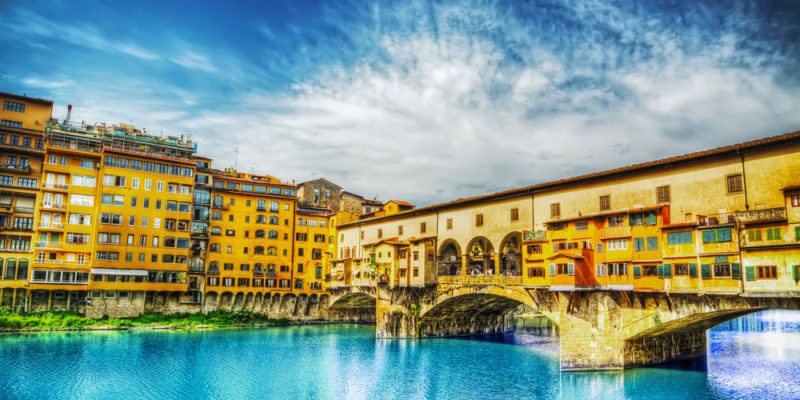We explain what tourism is, how it is classified and what are the means to travel. In addition, its general characteristics and the tourist
What is tourism?
Tourism is understood to be visits to a destination that is not the usual environment of the subject making the visit.
Tourism is also called the activities that people carry out while they are traveling.
Although many associate activity with leisure or rest , tourism does not necessarily imply rest, since many types of tourism imply activity and adventure.
Tourism history
The action of “sightseeing” is not a recent or modern term, on the contrary, it dates back to Ancient Greece with the Olympic games .At that time, people who wanted to participate or observe the Olympics had to travel to a certain destination every four years.
Touristic destinations
 Since tourism can not only be applied to the visit of places considered tourist by the majority, any destination other than the place of residence of the subject can be considered as tourism.
Since tourism can not only be applied to the visit of places considered tourist by the majority, any destination other than the place of residence of the subject can be considered as tourism.
Durability of tourism
Tourism is not determined by a specific time . You can travel for only a few hours or for several months.The characteristic of tourism is that the subject does not change his residence address (but he does move away from it) and the places he visits are places of transit for him.
Types of tourism
 Multiple and varied types of tourism can be differentiated depending on the topic it addresses. There is film tourism, childbirth tourism, business tourism, etc.
Multiple and varied types of tourism can be differentiated depending on the topic it addresses. There is film tourism, childbirth tourism, business tourism, etc.
- From the point of view of the number of people:
- Individual tourism. It is the type of tourism that is done alone or without company. Sometimes family tourism or with a small group of friends can be considered within this category, since it is compared with mass tourism that represents the transfer of more people from one geographical point to another.
- Mass or collective tourism. It is the tourism that takes place with a group of people, whether they are known or not by the tourist.
- From the point of view of the activities:
- Adventure Turism. It is a type of tourism in which the subject climbs mountains , hills, performs sports activities such as rafting, kayaking or diving that involve a greater energy drain than other types of tourism.
- Traditional or sedentary tourism. In this tourism, high-wear actions are not designated or too many activities are scheduled. On the contrary, the activities will depend on chance and without much prior programming.
- From the point of view of the objective:
- Cultural tourism. It is a type of tourism whose destination is some event or site of generally historical cultural attraction. Archaeological tourism can be derived from this, where the purpose of the tourist visit is to observe the remains of ancient societies .
- Gastronomic tourism. It is done with the aim of tasting different dishes or typical foods of the destination that the tourist is visiting.
- From the point of view of distance:
- Domestic tourism. It is carried out within the same national territory of residence of the tourist.
- International tourism. It exceeds the borders of the tourist's country of residence.
There are many varieties of tourism such as business tourism, sex tourism, entertainment tourism, stay tourism, community aid tourism, agrotourism or rural tourism.
Tourist displacement

In order to move to the tourist spot that the person wishes to visit, it is necessary to do so by some means such as:
- Walking. This type of tourism is better known as “backpacking”.
- By bus or car. The subject must make the purchase of a land passage or circulate in his own vehicle.
- Aerial. The most common is the plane but it can also be by helicopter.
- Maritime. This type of displacement can be by boat, cruise ship or a smaller vessel.
Tourism companies
The companies of tourism have a wide range of different destinations . From this point of view, tourism is a business or trade that provides different services to satisfy the need to travel and get to know different tourist destinations.
Tourist information

Tourism companies use brochures or films to show what the destination to which the subject wishes to visit tourist is like.
In this way, tourism companies provide useful data regarding the climate, social conditions , currency and all the information that may be useful.
The Turist

A tourist is considered to be one or those people who do tourism , both individually and in a group of friends or strangers.
Economic cost for the tourist

The tourist must pay for their stay, their trips and visits to tourist spots and also, any extra expenses that may arise.
Many tourist destinations such as national parks, squares or museums do not have a monetary cost.
Tourist behavior
There are differential characteristics that mark the behavior of people who do tourism:
- Exotic thinking. In relation to the site they visit, the tourist will present a feeling of estrangement and exoticism, valuing or not what is different from their own culture .
- Ignorance of the language. If the tourist moves to a place where their language is not spoken , they will need a translator or they will communicate with signs or in a language that the inhabitants can understand.
- Clothing. Clothing is one of the most notable physical characteristics, since it varies depending on the society to which the tourist belongs. The greater the distance from the tourist's home society, the more noticeable this characteristic will be.
MA student of the TransAtlantic Masters program at UNC-Chapel Hill. Political Science with a focus on European Studies. Expressed ideas are open to revision. He not only covers Technical articles but also has skills in the fields of SEO, graphics, web development and coding. .
Leave a reply
Your email address will not be published. Required fields are marked *Recent post

Sport: What Is It, Types, Risks, Features, Characteristics and Examples

Dogs: Emergence, Features, Characteristics, Feeding and Breeds

Story: Definition, Elements, Structure, Features and Characteristics

